Welcome to CNC machining, where you use computers to control machines and create precise parts. In this guide, we’ll walk you through the basics of CNC machines and how they work.
CNC stands for Computerized Numerical Control. It’s a method where machines like mills, lathes, and routers follow exact instructions from a computer. You program the machine to control its movements, speed, and actions. This makes it easier for you to create accurate and complex parts.
In the sections ahead, you’ll learn how CNC machines operate, the key components involved, and why they’re essential in modern manufacturing. Let’s get started!
What is CNC?
CNC stands for Computerized Numerical Control. It’s a process where you control machines like mills, lathes, or routers using a computer. Instead of doing everything by hand, you use software to automate tasks, making your work easier and more accurate.
How Does CNC Work?
CNC machines follow instructions from a computer program. You tell the machine how to move, how fast to go, and what steps to take. This ensures you get precise results every time. CNC helps you create detailed parts with accuracy, making it a valuable tool for your projects that need consistency.
Components of a CNC Machine:
1. Program Input:
Your CNC process starts with a digital file, usually created using CAD software. This file holds all the instructions your machine needs, like the cutting paths and tool movements. These instructions are then converted into G-code, which the CNC machine can understand.
2. G-code & M-code:
G-code is what tells your CNC machine how to move. It controls things like how far and how fast the machine should move or when to change tools. M-code handles extra tasks, like turning on the coolant or adjusting spindle speed.
To learn more about G-code & M-code, check out this article:
3. Machine Control Unit (MCU):
The Machine Control Unit (MCU) is the “brain” of your CNC machine. It reads the G-code and M-code and then sends signals to the machine’s motors. This ensures that the machine moves exactly how it’s supposed to. The MCU also keeps track of the machine’s performance and makes adjustments if needed.
4. Test Run (Dry Run):
Before starting production, you’ll usually run a test to make sure everything works as expected. This test run lets you check if the program is correct and avoid errors. It’s a useful step to prevent wasted materials and time.
The Importance of CNC Machines:
CNC machining is crucial in today’s manufacturing for many reasons. Let’s look at why:
1. Precision:
CNC machines do tricky tasks very accurately. This helps make complex parts the same way every time.
2. Automation:
CNC systems work on their own. They don’t need people to do every step. This makes things faster and less likely to have mistakes.
3. Versatility:
CNC machines can do lots of different jobs. We can program them to make many kinds of things. This makes them useful for different types of manufacturing.
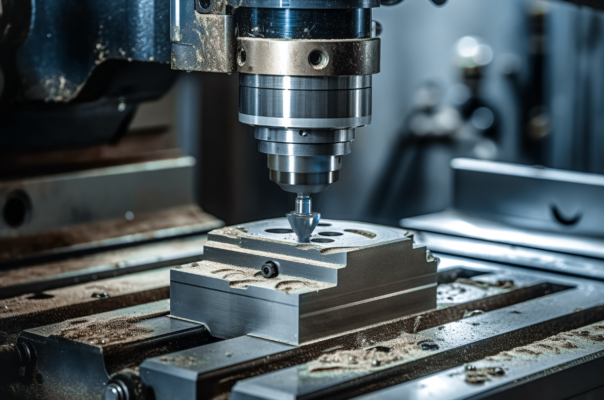
Types of CNC Machines:
There are different types of CNC machines made for various jobs. Let’s look at some of them:
1. CNC Mills:
These machines cut things with spinning tools. They can make many different shapes.
2. CNC Lathes:
Lathes spin things around while cutting tools shape them. This is good for making cylindrical parts.
3. CNC Routers:
Routers are used to cut and shape materials like wood and plastic. They’re helpful in woodworking.
4. CNC Plasma Cutters:
These machines cut through metal using a special torch. They’re great for precise metalwork.
5. CNC Electric Discharge Machines (EDM):
EDM machines use electricity to cut hard materials in intricate ways.
6. CNC Water Jet Cutters:
Water jet cutters use high-pressure water to cut through different materials, including metal and stone.
7. CNC Laser Cutters:
Laser cutters use a strong beam of light to cut through materials with great accuracy.
8. CNC Grinding Machines:
Grinding machines smooth surfaces and make things fit together perfectly.
9. CNC Press Brakes:
Press brakes bend and shape sheet metal, often used in metalworking.
10. CNC Swiss Machines:
Swiss machines make small and detailed parts, often used in making watches and medical devices.
11. CNC 3D Printers:
3D printers build things layer by layer. They’re good for making prototypes and custom parts.
12. CNC Wire EDM Machines:
Wire EDM machines use a wire to cut through materials, making intricate shapes.
6 Common Applications of CNC Machines:
CNC machines are very important in different industries. They help in making precise and important things. Let’s see where they are used:
1. Medicine:
In the medical field, you use CNC machines to create precise parts for tools and devices. This includes making implants, surgical tools, and custom medical parts. CNC helps you meet the high standards required for safety and performance in healthcare.
2. Aerospace:
In aerospace, accuracy is critical. You rely on CNC machines to make detailed parts like engine components and structural pieces. These machines ensure that each part is made to exact specifications, helping you maintain safety and reliability in aircraft.
3. Automotive:
CNC machines are essential in the automotive industry. You use them to create engine parts, transmissions, and other components. With CNC, you ensure each part fits perfectly and works reliably, improving vehicle performance.
4. Electronics:
For electronics, CNC machines help you make small, intricate parts like circuit boards and connectors. These machines give you the precision needed to produce high-quality electronic devices with consistent results.
5. Oil & Gas:
In the oil and gas industry, you use CNC machines to create tough parts for equipment that operates in extreme conditions. This includes making parts for drills, pumps, and pipelines.
6. Marine:
In marine applications, CNC machines help you create parts like propellers and engine components. These parts need to withstand harsh sea conditions, and CNC ensures they are built accurately and reliably.
Benefits of CNC Systems:
CNC systems bring around a lot of benefits. Let’s explore them:
1. Cost Savings:
CNC machines help you save money by reducing labor costs. Since the machines run automatically, you need fewer workers to operate them. They also minimize mistakes, which means fewer wasted materials and less need for rework. This helps lower your overall production expenses.
2. Reduced Material Waste:
CNC systems are very precise. They use just the right amount of material for each job. This means you waste less material, saving you money on supplies and reducing your environmental impact.
3. Improved Safety:
Because CNC machines are automated, you and your team don’t need to interact with them during operation. This reduces the chance of accidents and creates a safer working environment for everyone.
4. Consistent Quality:
CNC systems allow you to produce parts that are exactly the same, every time. You can rely on the machine to follow the programmed instructions, ensuring that each piece meets your quality standards without variation.
5. Faster Production:
CNC machines work around the clock without needing breaks. This means you can complete jobs faster and increase your output. If you need to meet tight deadlines or handle large orders, CNC machines can help you stay on schedule.
Drawbacks of CNC Systems:
CNC Systems also bring around a few drawbacks. Let’s have a look at them:
1. High Initial Costs:
Setting up a CNC system can be expensive. You’ll need to invest in the machine, special software, and sometimes even new tools. This can be a big financial commitment, especially if you’re running a small business or just starting out.
2. Regular Maintenance:
CNC machines require regular maintenance to keep them running efficiently. You’ll need to perform routine checks, clean parts, and update software. These tasks can add to your operating costs and, if not done on time, can lead to machine downtime, affecting your productivity.
3. Need for Skilled Operators:
Even though CNC machines automate much of the work, you still need trained operators. These people must know how to program the machine, monitor its performance, and fix any issues that come up. Finding and hiring skilled workers can be difficult, especially if there’s a shortage of talent in your area.
4. Limited Flexibility for Quick Changes:
CNC machines follow set programs, so making quick adjustments during a job can be challenging. If your work often involves small, last-minute changes or custom tasks, you might find the programming process slows you down and requires more time to make updates.
These challenges are important to consider when deciding whether CNC systems are the right fit for you.
Conclusion:
In short, CNC machining is a crucial method used in different industries. These machines are important for creating parts in planes, cars, and electronics. Even though starting CNC can be expensive, and finding trained people is challenging, it has many benefits, like saving money and working safely.
Looking ahead, efforts are being made to make CNC more automatic and easy for everyone to use. CNC machines are always getting better, solving problems, and preparing for what’s next in manufacturing.
Do You Need To Compare Different CNC Machines?
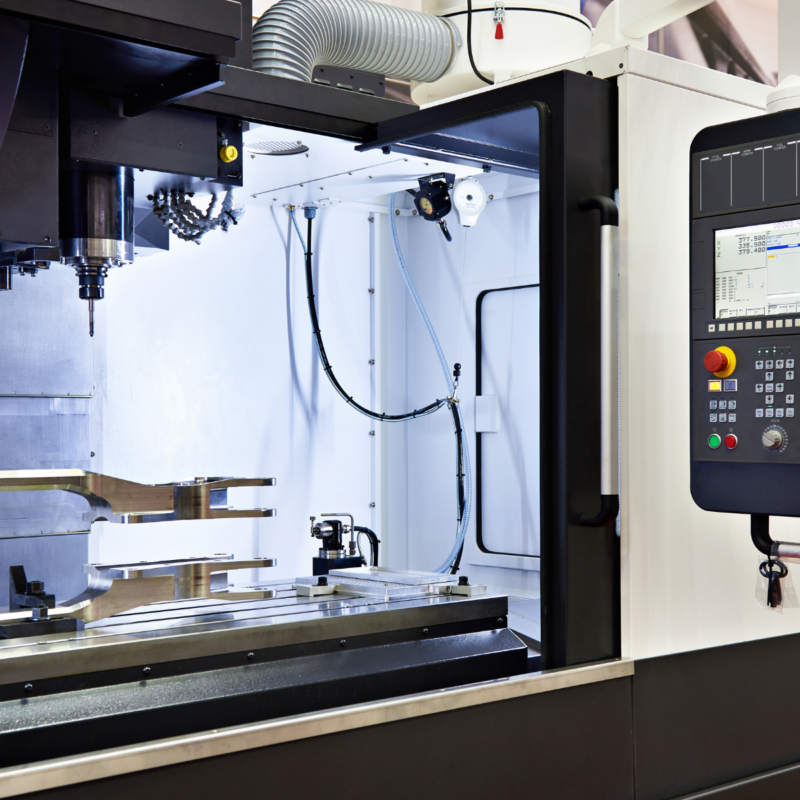
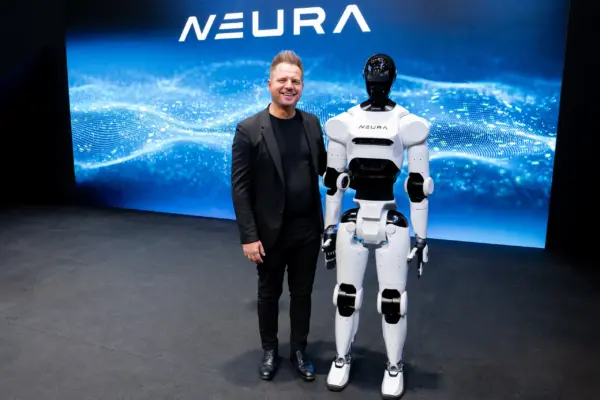

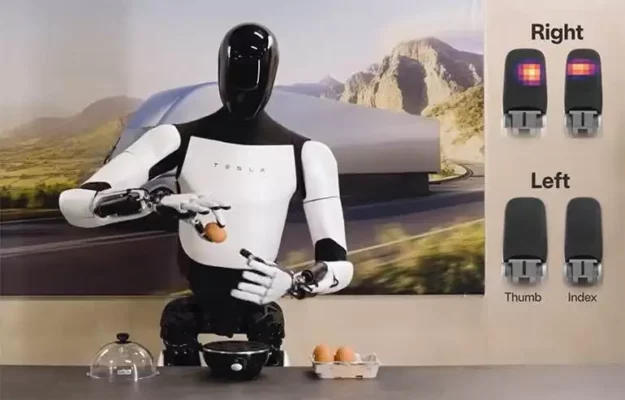
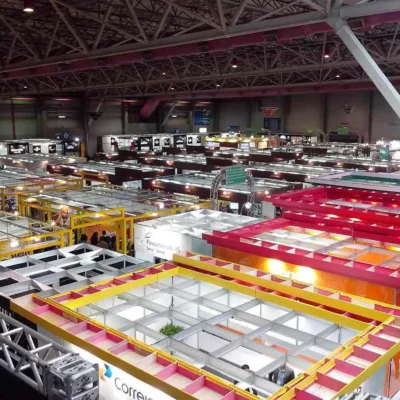

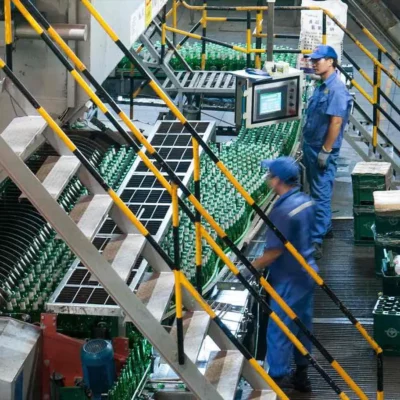
I read the blog on CNC machines from QVIRO, and it’s a fantastic overview! It breaks down the basics of what CNC machines are, how they work, and their applications in a way that’s super easy to grasp, even for beginners. I especially liked the clear explanation of the different types of CNC machines and their real-world uses across industries like manufacturing and woodworking. Great job on making a technical topic so accessible and engaging!
Thank you so much for your kind words and thoughtful feedback! We’re thrilled to hear that you found the blog helpful and easy to understand. Making technical topics accessible is exactly what we aim for, so your comment truly means a lot to us!